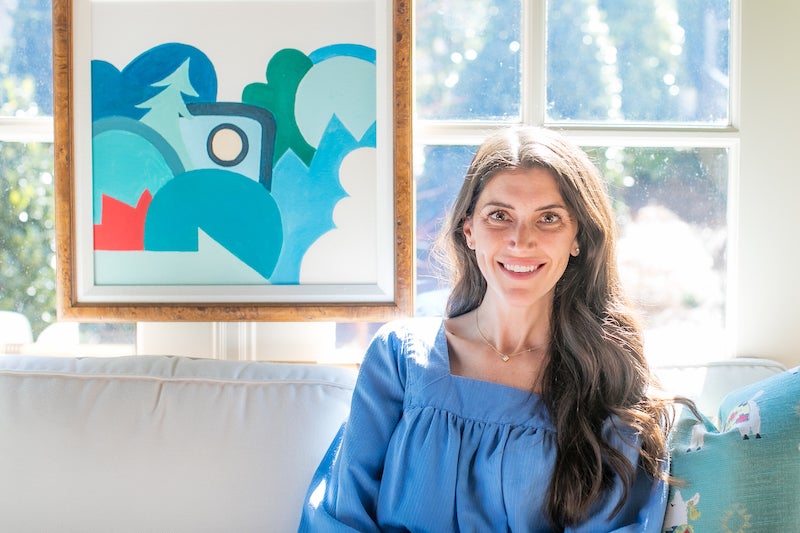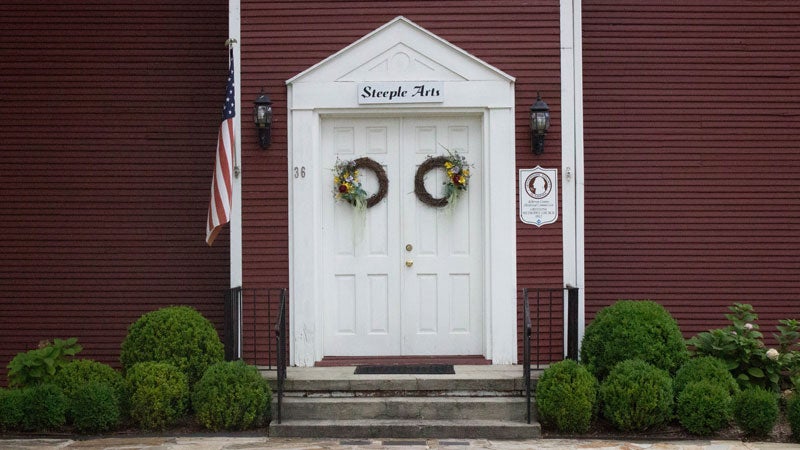Being a teenager can be overwhelming, and Cameron Cole and Charlotte Getz know that full well—both from their work with teens through Rooted Ministry and their own years of adolescence. That’s why they wanted to create a book that speaks to those teen experiences told from a diverse range of voices and perspectives (including MBHS grads Catherine Allen and Rebecca Lankford and Mountain Brook resident Anna Harris) in the newly published The Jesus I Wish I Knew In High School. Sandra McCracken, Michelle Reyes, Jen Pollock Michel and David Zahl are among the book’s 30 authors as well. To learn more about it, we chatted with Cameron, Charlotte and chapter writer Lauren Hansen—who all grew up in Mountain Brook and are now raising their future teenagers here.
Where did the idea for the book come from?
Cameron: I have had this idea for 10 years. Part of what drives my passion for youth ministry is I wish I had known the gospel of grace when I was a kid like I did when I was 22 years old because it radically changed my life. I was so much more free and so much more at rest. On top of that, being a teenager is one of the most difficult season of life, and I think adults forget how miserable and insecure and scary it is. I think it’s important for adults to go back to their experience as teenagers so they can have empathy and compassion for the teenage struggle. That passion and conviction evolved into a desire to do a book.
I thought about writing it myself for a long time, but there is such a diversity of experience based on personalities and culture and socioeconomic and family situations. I thought it was important for a whole plethora of challenges to be represented. The hope of this book is kids will feel understood by Christian adults and by God and that they will find the comfort of grace in that. I thought they would hear it in a more powerful way if they hear it from 30 different perspectives.
Can you share a little about what your own essays are about?
Lauren: The topic of my chapter is body image and struggle of seeing yourself as God sees you rather than seeing yourself as the world expects you to be. It’s so easy to fall into the trap of forming ourselves into what we think the world would love so then we will be loved, but we can never be enough by our own merits and live up the changing standards of what is beautiful and loveable. I wish I had known earlier on that God had made me fearfully and wonderfully and with a purpose and that he accepts me and loves me.
Charlotte: As a teenager I was longing for something exciting and for adventure and to be the leading lady of my life. I was involved in theatre and wanted to be a movie star, and I thought that would satisfy that longing for excitement and to feel seen and known. The Jesus I Wish I Had Known says, “You are part of the greatest story of all time. There is a God who came to earth to die for you.” That is the great story arch of all stories. You don’t have to make your own story because of who God says you are.
One of the essays is written by Mac Harris, who went to MBHS. What does he write about?
Charlotte: Mac’s is about losing his dad to colon cancer when he was 13. He talks about in his grief and how it took him years to realize was that in order to grieve he had to lean into that grief and that it wasn’t necessarily going to be a terrifying place because God was already with him in that grief and that Jesus would walk with him through that valley. What he writes applies to so many tough feelings. He says avoiding them doesn’t make them go away, but you can trust the God who experienced terrible grief and suffering has never left your side as you are walking through those emotions.
What other essays and perspectives stand out to you?
Charlotte: There’s a chapter by Dawson Cooper, a Mountain Brook parent, and she talks about her experience becoming pregnant as a freshman in college by her high school/college boyfriend. Reading that Jesus never left her and that she was loved through every moment of her worst shame stood to me. That story capitalizes so much on that we do not have a god who is judging your every move. He wants you to live on his will and have a positive life outside of sin, but he loves you so much and will not throw those flames of judgment in your worst failure. There is not anything you can do that will put you outside of the love of God.
Cameron: A well-known author and preacher named Scott Sauls talks about how he felt deeply insecure and how he thought he could keep himself safe was being a bully. In these essays you find out lot of well-known writers and pastors and voices in the Christian world are sinners too. You see they were just as flawed and insecure as any teenager who is out there, so there is hope.
How do you hope the book will impact both teens and adults?
Cameron: One of the hallmarks of this book is the people writing these chapters are really intimate about their insecurities and mistakes that I think will make a lot of young people say, “Wow, someone really does understand what I am going through.” By reading it I think parents will remember what a hard season teenagers are in. This book is a look behind the curtain of the teenage heart, and it enables parents and adults to relate to adolescents with more compassion and more grace.











